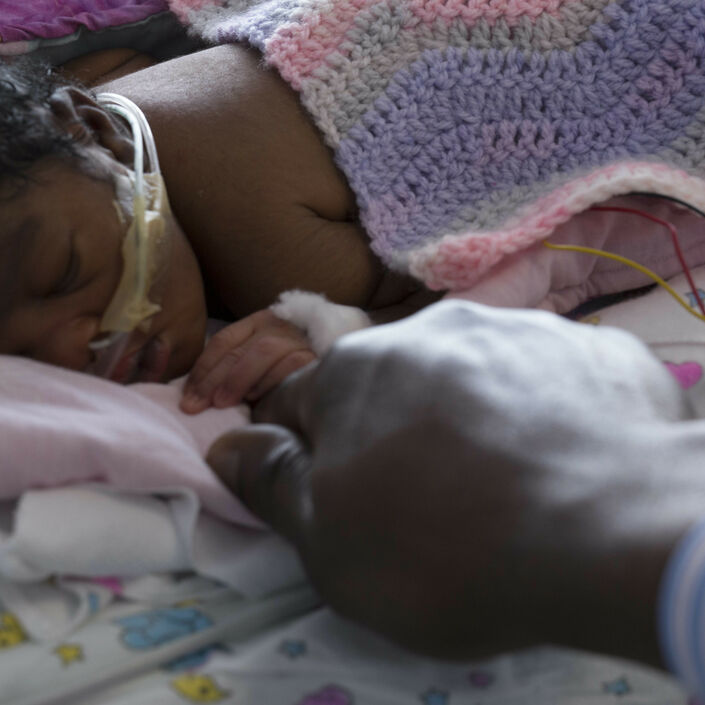(Last updated: 23/05/2023)
Prematurity statistics in the UK

View our statistics on the number of babies born premature in the UK and some information about the long term outcomes for these babies.
How many babies are born prematurely in the UK?
We estimate that nearly 58,000 babies are born prematurely in the UK every year.
This means that 1 in every 13 babies born in the UK will be born premature (before 37 weeks of pregnancy).
The latest data shows that the number of babies born premature is increasing:
- The overall percentage of preterm live births increased from 7.4% in 2020 to 7.6% in 2021
- Babies from the Black ethnic group have had the highest proportion of preterm births since data collection began in 2007. In 2021, 8.7% of live births in the Black ethnic group were preterm births.
- Between 2020 and 2021, the biggest percentage increase in preterm live births was in the Asian ethnic group, from 7.5% to 8.1%
Do all premature babies need neonatal care?
Not all of these babies will need to be cared for in a neonatal unit. Many babies born prematurely will be born late preterm (at 34-36 weeks of pregnancy), and some of these may not need specialist care on a neonatal unit.
For every 1,000 babies who need neonatal care in the UK, we estimate that:
- 25 are extremely preterm (being before 28 weeks of pregnancy)
- 51 are very preterm (being born between 28 weeks and less than 32 weeks of pregnancy)
- 283 are moderately preterm (being born between 32 weeks and less than 37 weeks of pregnancy)
- 641 are born at full term (being born at 37 weeks or more of pregnancy).1
What are the long-term outcomes for babies born premature?
It is important to remember that every baby is different and will develop differently.
As some babies who were born prematurely develop into children and adults, they may suffer from conditions such as behavioural difficulties, long-term health problems or cerebral palsy. Some research has also found that the earlier a baby is born the higher their risk of having special educational needs at school.
If you are worried about your baby’s development please speak to a health professional.
Find out more
Some of the statistics in this part of our webiste have been generated with help from the Neonatal Data Analysis Unit (NDAU). This data is available for clinicians, researchers or anyone who has an interest in learning more about babies who are cared for in neonatal care, and how this is changing over time.
You can access the tool here.

